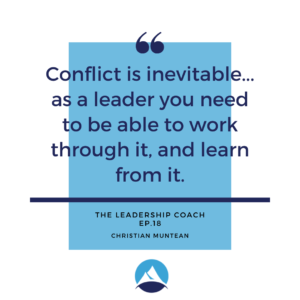How Do I Relate to People I Can’t Agree With?

 Have you experienced something like this?
Have you experienced something like this?
When people who don’t know me well express their political or social frustrations – they tend to assume that I’m “on their side.” I tend to listen. I might ask some questions. My understanding of this dynamic is that because they enjoy their conversation with me and feel listened to, they conclude we must see things similarly. But the truth is, I rarely do. I don’t try to be contrarian. It’s just that the conclusions I arrive at aren’t quite the same as most others. At least not in totality.
On the other hand, people who know me well often assume I’m “on the other side.” They tend to get into deeper conversations with me. So, they hear more of my “contrarian” points of view. And because my perspective isn’t entirely in line with theirs –they worry that I’m part of the “other.” Which I’m not.
I’m in a little, lonely, political party of one.
Personally, I don’t buy into the idea that all perspectives in life line up neatly on a linear spectrum between “Left” and “Right.” But to the point of this article – here’s what I’ve also noticed: Almost no one, from whatever side they think they are on, asks me what I think or how I arrived at that conclusion.
Most people tend to approach me with assumptions and pre-judgments. This isn’t all necessarily negative. But it is often inaccurate. I can do this as well. I have to regularly remind myself that my understanding of situations or others is limited. Much of what I think I know is based on partial information, inaccurate information, or imagination. I have to ask myself: What evidence is there to support this conclusion?
Do you experience this?
Where Differences Contrast
Here’s something else I’ve noticed. It’s come into an even higher contrast this year:
People who I like and respect, people who are thoughtful, caring, and moral – somehow arrive at vastly different political conclusions and positions from each other. These are people who genuinely want what’s best for their community or our country. These are people who make service to others as a part of life – either vocationally or as volunteers.
These people are not the kind of people who the “other side” describes them to be. They are not stupid, ignorant, uncaring, or depraved. Not that those kinds of people don’t exist.
These are good people. The kind of people you want as friends or family. The kind of people you’d want as a neighbor. As long as they don’t put a political sign up in their yard.
Do Differences Really Matter?
Yup. They do. And there are better and worse decisions. More effective and less effective policies. There are wisdom and foolishness. There is right and there is wrong.
But…when good people struggle to get along…I wonder if they are paying attention to the right things. Or if they are paying too much attention to the wrong things.
Living in a World of Differences
In my work with leaders and teams – I’ve found that very smart, very successful, very well-meaning people can miss it and miss each other. They find differences (or even potential differences) in opinion to be threatening. They interpret their sense of being threatened as something that the “other” is doing to them. They assume disrespect or conflict where it often doesn’t exist. They react out of that. There is a counter-reaction and the fight is on.
Really, it’s crazy. Literally.
Having spent thousands of hours helping people navigate conflict, I’ve learned this: Most apparently intractable disagreements and conflicts are really not about substantive, objectives issues.
They are about what we imagine others meant, intended, or what we think happened or will happen. Nearly always they include a sense of someone feeling deceived or disrespected.
A distinct minority of conflicts are primarily driven by what was actually meant, intended, did happen, or will happen. Which means most of what prevents or breaks relationships happens in our imagination. Our interpretation of reality. Which is often wrong.
We believe we are rational. But the norm (even for smart and good people) is to react and make decisions based on imagined facts or intentions. This is neither smart nor good.
Can We Disagree and Get Along?
Most of my readers are in the US. Our society was built on the assumption that people would disagree and still find a way to get along. For better or worse – it has created sufficient peace to become the oldest continually running government in the world. Not through controlling differences – but by engaging them.
So, can we do this? Yes, and we have a long history that demonstrates this.
How to Disagree Well:
Gratefully, I have helped and watched many clients work through disagreements that they thought were unresolvable. Difficult, complicated, and emotional situations where people felt betrayed, threatened, and disrespected. Not only have I seen people come to some kind of agreement, but I’ve also watched relationships actually be repaired and even become stronger as a result.
Here are battle-tested principles that can help you disagree with others without needing to lose a relationship.
- Be curious: Most people don’t feel heard. Largely because most people don’t listen. It is amazing how quickly you can defuse a situation just be being curious and listening. You will almost never defuse or improve a situation by out-arguing someone or trying to completely avoid them. It’s fun to watch people give zingers and witty rejoinders. But that makes good TV – not good relationships.
Ask the kinds of questions that are designed to help you understand the other person. Not the kind that requires them to defend a position. Build a habit of asking at least 2 or 3 follow-up questions before responding with your own opinion.
- Let them tell their story: Many people believe that if I let someone else talk or tell their story, it just validates their point of view. It doesn’t. But it does validate them.
Not feeling valued is such a major part of conflict and disagreements – it’s worth taking the time to understand where other people are coming from. If you do ask good questions and do listen well, it often defuses the situation sufficiently where a real conversation becomes possible.
Give them space to “get their air out.” You might be surprised how, when you give someone else space, they’ll return the favor.
- Reject caricatures and suspend judgment: Have your own opinions, but practice withholding judgment about another person or situation. Ask yourself if your judgment on the situation is even helpful to anyone. Ask yourself, “How do I know that what I think is true…is?” Ask yourself if you should ask another question.
Reject the thinking: “Oh, they are voting for this person. Therefore, I know what is important to them, how they live their lives, and what they think about issues X, Y, and Z.”
- Explore Interests: This is really key. It’s getting into people’s, “Why.”
In all of the listening above, try to understand what makes a particular solution, policy, or position important to them. Don’t just guess. Ask: “What makes that approach to health care/the economy/policing important to you? What is it that brought you to that position? What are you concerned will happen if that does/doesn’t happen?”
You’ll find that most people’s “why” or their underlying interests usually aren’t that crazy sounding. In fact, you’ll find that most of the time, you’ll find you have much more in common than you think.
This is not a starry-eyed concept. I’ve facilitated many conversations between leaders even at the public policy level. They are often shocked to find out that what they want and what “the other side” wants are often very similar. Discovering that changes the conversation.
What’s Most Important
The most important thing in America isn’t who wins a political campaign. More important than that is how we choose to treat each other from day-to-day. The country is built to survive all kinds of policies and philosophies. It’s not built to survive an overt refusal to treat each other with simple dignity.
It costs us very little to start listening and stop reacting. But the rewards of the simple act of treating others well, even when you suspect they might be part of the “other”, are significant.
Please try it.
Take good care,
Christian
 My new book The Successful New CEO, published by BEP, is now available! Specifically written for new executives (or executives new to an organization), it takes a deep dive into the character, practices, and principles that set successful leaders apart. Available in print or Kindle at Amazon, also at Barnes and Noble or wherever you buy your books.
My new book The Successful New CEO, published by BEP, is now available! Specifically written for new executives (or executives new to an organization), it takes a deep dive into the character, practices, and principles that set successful leaders apart. Available in print or Kindle at Amazon, also at Barnes and Noble or wherever you buy your books.
Find the value of your company with my free assessment tool: The Value Builder System
The Value Builder System™ is a 13-minute online questionnaire that evaluates your business on the eight factors that contribute more to its attractiveness and value. These factors are scored on a scale of 1-100. Businesses that score over 80 are likely to command 70%-100% higher value than others.
In my podcast, THE LEADERSHIP COACH, we explore effective, high impact and enjoyable leadership. We talk about personal development and the attributes that all effective leaders possess. I interview other leadership experts who share their knowledge and tips to help you build the confidence to lead and learn the habits of good decision-making.
Opportunities
Free Resource: How To Accomplish More Without Doing More is a workbook I created to walk leaders through a process of helping you own your calendar, liberate your time, and still get more done. Download it for free!
Executive and Leadership Coaching: Do you feel overwhelmed? Are you not getting the results you expect from the effort you are putting in? Do you find yourself facing similar challenges time and time again? Would you like to change specific ways of relating or reacting? If you would like to experience predictable, measurable growth Contact me.
Profitable Exit Strategy Workshop: Are you a business owner or partner? Are you over 55? Are you starting to think about exiting your business or active management in the next 3-5 years?
- Are you curious about what your business might be worth?
- Would you like to discover the specific steps you need to take to increase its value and become highly attractive to a buyer?
- Are you planning on handing it over to family or employees and you want to ensure long-term success?
If so, contact me now
Categories
Get Christian’s Newest Book: Train to Lead

Download my free 10-page eBook:
How To Accomplish More Without Doing More:
Eight Proven Strategies To Change Your Life
Discover how to save eight hours during your workweek-even if you're too busy to even think about it. The resource every maxed out executive needs.

